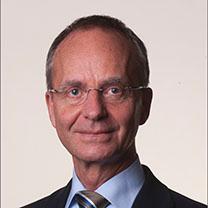The 25th session of the Energy Charter Conference kicked off in Astana on Nov. 27. During the event, authoritative representatives of the world’s energy elite discussed pressing issues of energy transit, the development of transport networks and strengthening markets and energy security. Prior to the session, Minister of Economic Affairs of the Netherlands Henk Kamp, a participant in the event, spoke about the agenda of the session and the development of cooperation between Kazakhstan and the Netherlands, including in the energy sector.
 Mr. Kamp, what results are you expecting from the Energy Charter Conference in Astana?
Mr. Kamp, what results are you expecting from the Energy Charter Conference in Astana?
The conference will discuss a new text for the International Energy Charter, as the current agreement, which dates back to 1991, no longer addresses modern challenges and, therefore, needs to be replaced.
During this period of time, the world has changed dramatically, affected by globalisation. The issue of how to provide energy in the future is becoming increasingly pressing. More investment is needed to meet global energy demand. In turn, it is important for entrepreneurs to have a smooth field for activities, so the process of investing in a power project is easier.
The Netherlands attaches great importance to international cooperation in the field of energy and supports updating the text of the Energy Charter. This document forms the international policy and legal framework for cooperation in the energy sector. Today, 51 states have joined the charter. I hope that the renewal of the Energy Charter will lead to more states adhering to it. We expect to sign a new charter next year during a conference in The Hague.
How do you see energy cooperation between Kazakhstan and the Netherlands, including in the fields of energy efficiency and environmental safety?
The Netherlands and Kazakhstan cooperate in various fields of energy. Knowledge, which the Netherlands possesses, can be most effectively used in Kazakhstan, which has rich natural sources of energy. Thus, the Dutch company Shell is already working on the Kashagan oil field, while the shipping company Wagenborg offers its experience and ships for the oil and gas industry.
Likewise, our cooperation advances in the field of renewable energy sources and energy efficiency. The Netherlands has accumulated great experience in the use of solar energy. Necessary solar cells are, for the most part, made from silicon. Kazakhstan is a state where these raw materials abound. I look forward to more intensive cooperation between our countries in this field.
The Netherlands is the top investor in Kazakhstan’s economy. Your country is also one of our main trading partners. Which sectors of Kazakhstan’s economy are the most promising for Dutch business?
The oil and gas industry and shipping provide the most significant opportunities for Dutch companies. We can see it in businesses, which already actively operate in Kazakhstan, such as Shell, Philips, Witteveen Bos and Van Oord. Other important sectors include health, agriculture, transport and logistics, water management, wastewater treatment and environmental energy. In the framework of the current trade mission, the first meeting of the Joint Business Council of the Netherlands and Kazakhstan will be held. I believe that the new council of enterprises of our countries will promote establishing close and mutually beneficial contacts.
Kazakhstan has entered the Eurasian Economic Union. We have adopted a programme to improve the investment climate, and now are completing the first five years of industrialisation. How attractive are the actions of Kazakhstan for Dutch companies? Are they willing to come and create high-tech industries in Kazakhstan?
Dutch companies have a strong interest in working in Kazakhstan. With representatives of more than 20 companies, [on this visit] I examined available business opportunities in Atyrau, Almaty and Astana. The Netherlands appreciates a state with an open investment climate, with the activities of businesses and public authorities being transparent. It is good that Kazakhstan is working to improve the investment climate. It contributes to business activity. However, procedures for obtaining a work permit for companies in the oil and gas sectors are still very strict. This, in particular, complicates the process of hiring foreign employees in enterprises in these industries.
How would you assess prospects for cooperation between our countries?
I believe that in the upcoming years, business relationships between our two countries will grow even deeper in energy, transport and logistics, finance and banking and agriculture. Both the Netherlands and Kazakhstan are highly interested in cooperation. This spring, a Kazakh trade mission visited the Netherlands; now, 20 Dutch companies are visiting Kazakhstan. These trade missions are very important for the development of trade relations between the two countries. Through personal meetings and the exchange of ideas, entrepreneurs strengthen relationships. Kazakhstan has many natural sources of energy, while the Netherlands has the technology. It is a winning combination, as the two countries can complement each other. The current mission is aimed at realisation of this advantage. In addition, the Netherlands is a very reliable business partnerof Kazakhstan. Thanks to the opportunities provided by the Port of Rotterdam, Schiphol airport, high-quality Internet access and a sound financial sector, the Netherlands is an ideal partner for joint business.
Do Dutch companies plan to participate in EXPO 2017 in Astana?
Currently, the Netherlands is fully transitioning to sustainable energy supply. Therefore, the Dutch business community is interested in the theme of EXPO 2017, “Future Energy.” At the moment, we are estimating how eager business circles are to participate in the exhibition.
